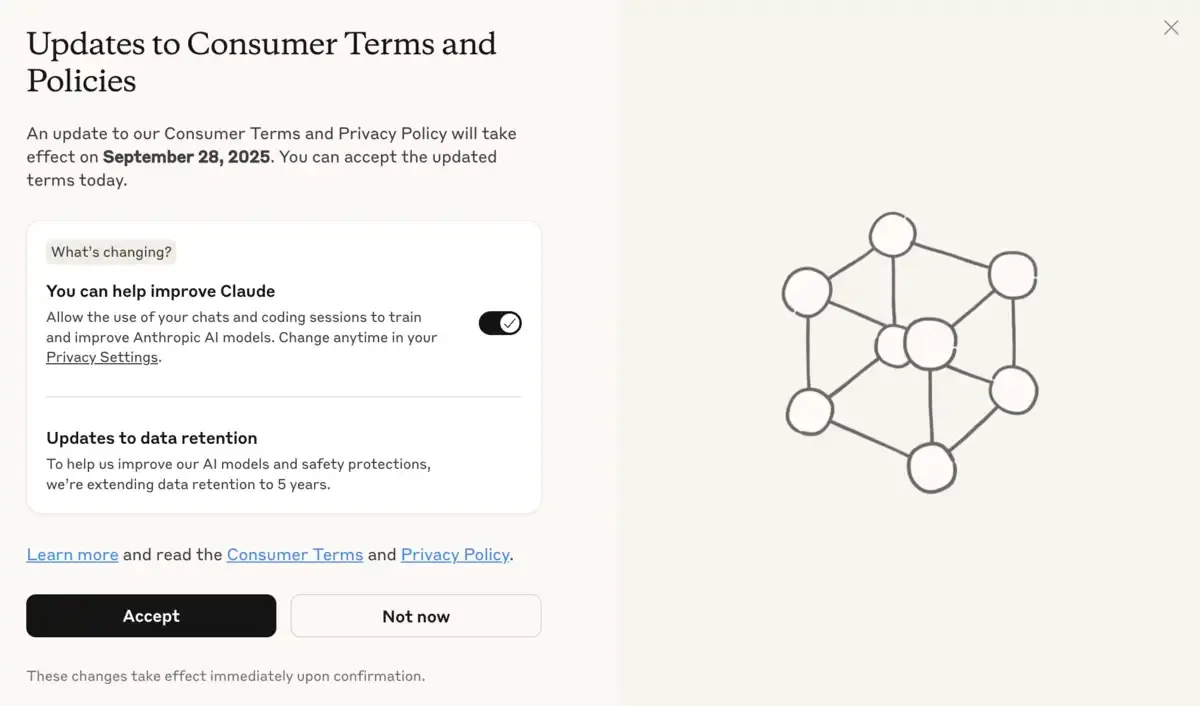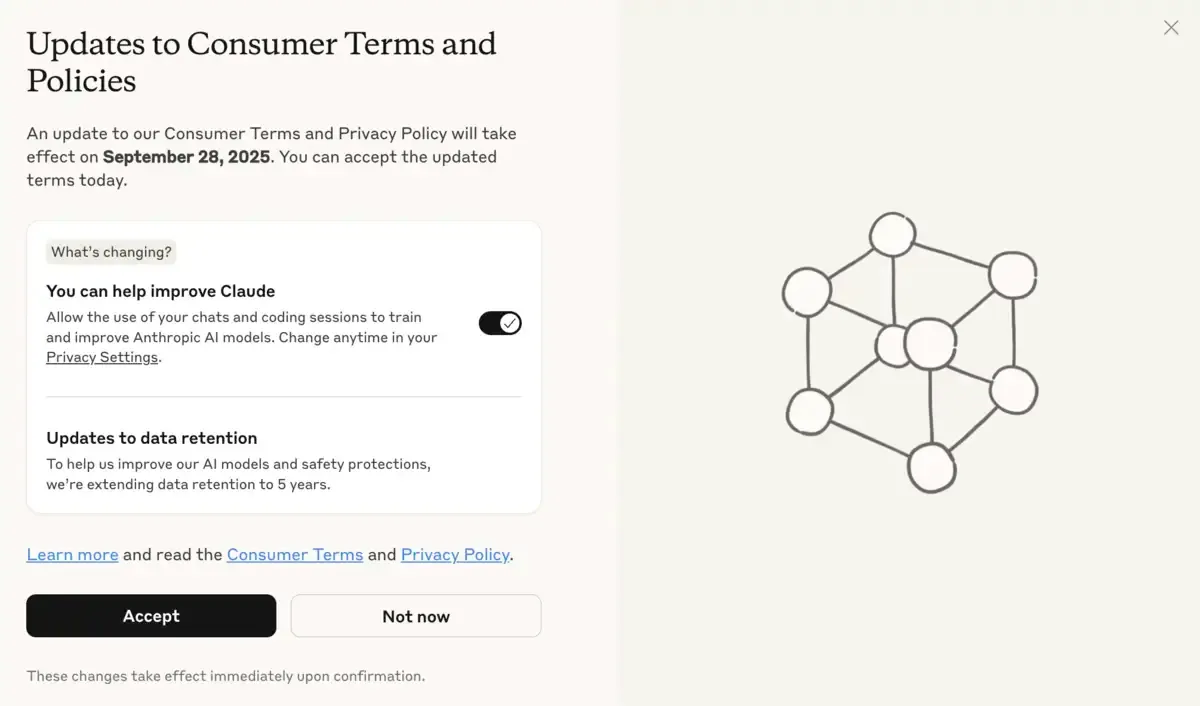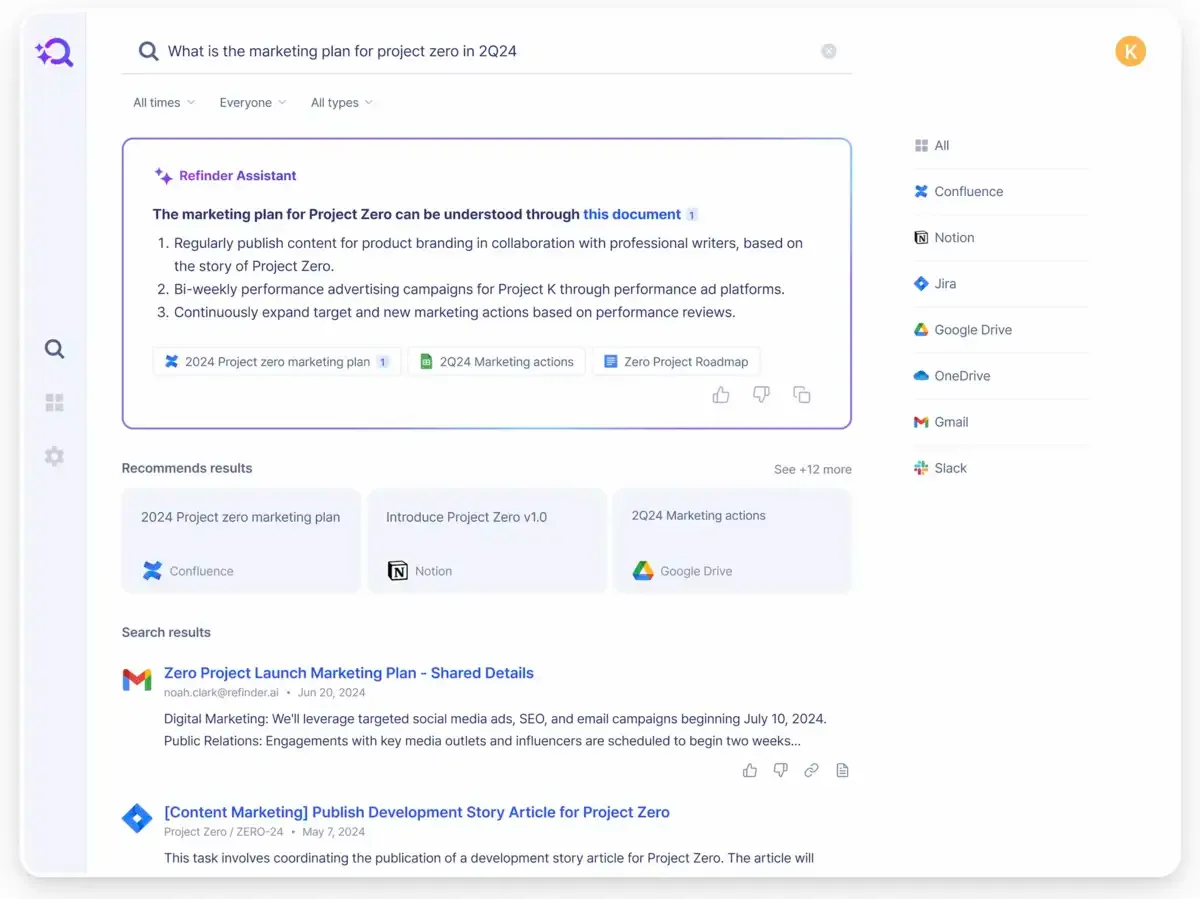Good Morning from San Francisco,
👉 Speed beats smarts in xAI's latest gambit. Grok Code Fast 1 launches free through September, undercutting competitors with aggressive pricing. The company chose responsiveness over raw capability—a bet that developer productivity trumps benchmark bragging rights.
✅ Anthropic ditches its 30-day deletion promise. Consumer Claude users face a September deadline: opt into five-year data retention or lose training eligibility. Enterprise customers keep their protections. The shift signals industry-wide hunger for training data as scaling hits diminishing returns.
❗AI music reaches radio quality, but legal chaos reigns. Udio leads the pack while dodging major label lawsuits. Licensed alternatives like ElevenLabs Music offer safer bets for commercial users. Settlement talks will likely split the market between consumer and professional tiers.
Three stories. One theme: AI companies picking battles they can actually win.
Stay curious,
Marcus Schuler
xAI targets speed over smarts in coding race

xAI launched Grok Code Fast 1 Thursday, prioritizing responsiveness over raw capability in autonomous coding workflows.
The model launches free through September 2nd via GitHub Copilot and other developer platforms, priced at $0.20/$1.50/$0.02 per million tokens—undercutting established competitors.
From xAI's perspective, speed trumps benchmark performance for daily programming tasks. The company reports 70.8% on SWE-Bench-Verified with 90% cache hit rates, trading peak capability for workflow continuity. From Microsoft's view, model diversity strengthens Copilot's platform appeal without disrupting enterprise adoption patterns. From developers' standpoint, another choice emerges in an increasingly fragmented landscape.
The technical approach targets "agentic workflows"—autonomous tool sequences where current models bog down. xAI claims "dozens of tool calls" during initial processing, addressing latency that kills productivity in iterative coding cycles.
The partnership strategy reveals broader dynamics. Rather than building proprietary distribution, xAI immediately integrated with established platforms—recognizing that developer habits resist disruption more than tools resist commoditization.
Why this matters:
• Speed optimization becomes primary differentiation as AI coding capabilities converge across providers
• Platform integration strategy suggests fragmentation toward specialized models rather than single-vendor dominance

AI Image of the Day

Prompt:
A scene from a movie, featuring a cute girl standing against a futuristic, steampunk city background. The cute girl is wearing a steampunk outfit. A miniskirt.
Anthropic abandons 30-day deletion for consumer Claude users

Anthropic is scrapping its 30-day data deletion policy for Claude's consumer tiers. Free, Pro, and Max users must decide by September 28, 2025 whether new and resumed conversations can train future AI models—with data retained for five years instead of one month.
The shift affects millions of consumer accounts while exempting all commercial users. Enterprise, government, and API customers keep existing protections. Only "new or resumed" chats qualify for training, leaving previous inactive conversations untouched.
The timeline reflects AI development realities. Building frontier models takes 18-24 months, making longer retention windows essential for consistent training cycles. Extended data collection also improves abuse detection systems that need behavioral patterns across years, not weeks.
The timing isn't coincidental—every major AI lab faces identical pressures as compute scaling delivers diminishing returns and competition intensifies.
Why this matters:
• Industry template: Anthropic's careful opt-in structure with commercial exemptions provides a blueprint for competitors facing the same data scarcity and regulatory scrutiny
• Privacy reset: The shift from deletion-by-default to optional retention signals broader recalibration of user expectations as AI business models mature

🧰 AI Toolbox
How to Search All Your Work Apps in One Place

Refinder AI creates a universal search engine that connects all your company's apps and data sources. This AI-powered assistant finds files, messages, and information across platforms like Gmail, Slack, Google Drive, and 30+ other work tools in seconds.
Tutorial:
- Go to the Refinder AI website
- Connect your work apps and data sources to the platform
- The AI indexes and consolidates information from all connected platforms
- Search across everything using natural language queries from one interface
- Get AI-powered answers with relevant sources and context
- Access robust security controls and permission settings for data protection
- Eliminate app-switching and find any company information instantly
URL: https://refinder.ai/
Better prompting...
Today: Emoji Selection Strategy
What emoji best represents [insert topic]? Suggest other emojis that could work and explain what emotions they convey.
AI & Tech News
Meta's new AI stars quit within weeks of joining
Shengjia Zhao, co-creator of ChatGPT, threatened to quit Meta within days of joining and return to OpenAI, forcing the company to hastily promote him to "chief AI scientist" to keep him. The incident reflects broader chaos in Mark Zuckerberg's AI hiring spree, with multiple high-profile recruits already departing after brief tenures and Meta now pausing hiring while considering cuts to its AI team after four reorganizations in six months.
Microsoft launches homegrown AI models under Mustafa Suleyman
Microsoft unveiled powerful new AI models developed in-house under CEO Mustafa Suleyman, marking the company's move beyond its exclusive partnership with OpenAI to build competing technology on Nvidia's next-generation GB-200 chips. The launch signals how major cloud providers are abandoning AI partnerships in favor of proprietary development, reshaping the industry from collaborative ecosystems into direct competition for the tens of billions in quarterly AI infrastructure spending.
OpenAI cuts voice AI costs 20%, adds enterprise features
OpenAI launched its Realtime API Thursday with gpt-realtime model, cutting voice AI costs 20% while adding phone system integration and business tool access that targets enterprise deployments over consumer demos. The move intensifies competition with open-source rivals like Mistral's Voxtral claiming half the price, forcing the voice AI market toward a cost-versus-reliability trade-off that will determine whether managed platforms or DIY solutions dominate enterprise adoption.
Alibaba builds AI chip to replace restricted Nvidia hardware
Alibaba developed a new AI processor designed to substitute for Nvidia's H20 chip—the most powerful AI processor the US allows Nvidia to sell in China—marking the latest move in Beijing's $8.4 billion push to build domestic alternatives after Washington blocked access to advanced American semiconductors. The chip signals China's systematic effort to create a parallel AI supply chain that could challenge US technological dominance, with multiple Chinese companies now producing Nvidia substitutes despite remaining years behind the most advanced American processors.
Huawei returns to profit as DeepSeek drives AI chip demand
Huawei posted a $5.2 billion profit in the first half of 2025, reversing a fourth-quarter loss as DeepSeek's breakthrough language model sparked massive demand for the company's Ascend AI chips among Chinese developers blocked from buying advanced Nvidia processors. The results signal how US export restrictions are reshaping global tech supply chains, with Huawei emerging as China's de facto national semiconductor champion while also reclaiming the top spot in domestic smartphone sales for the first time in four years.
Hacker finds Tesla crash data company claimed was missing
A jury ordered Tesla to pay $243 million in damages after a hacker found critical crash data from a 2019 fatal accident that the company spent years claiming it didn't have, only for Tesla to admit it possessed the information on its servers all along. The verdict marks Tesla's first major courtroom loss in Autopilot litigation and gives momentum to dozens of pending lawsuits challenging the company's driver-assistance technology.
Musk seeks dismissal of SEC Twitter disclosure lawsuit
Elon Musk asked a federal judge to dismiss an SEC lawsuit alleging he was 11 days late disclosing his 5% Twitter stake in 2022, with his lawyers arguing the case shows "no intent" and "no harm" despite the regulator's claim he cost shareholders $150 million. The dismissal request exposes how tech billionaires are mounting aggressive legal challenges against federal regulators, particularly as enforcement actions filed during political transitions face scrutiny over timing and motivation.
Reliance plans Jio IPO by 2026 with Google, Meta partnerships
Reliance Industries will take its telecom arm Jio Platforms public by mid-2026, chairman Mukesh Ambani announced Friday, ending years of speculation around one of India's most anticipated IPOs valued at over $100 billion. The move comes as Reliance deepens AI partnerships with Google and Meta through a new $100 million joint venture, positioning the company to capture India's digital transformation while unlocking separate valuations for its telecom business outside its oil and chemicals portfolio.
Pakistan spammers earn thousands posting fake AI Holocaust images
Pakistan-based content creators are generating thousands of dollars through Meta's monetization program by posting AI-created images of fictional Holocaust victims, with one account claiming $20,000 in earnings and 1.2 billion views across four months. The scheme exposes how social media platforms' engagement-driven revenue models can weaponize historical tragedies, turning genocide commemoration into profitable spam while distressing survivors and undermining legitimate Holocaust education efforts.
Man kills mother, self after months of ChatGPT conversations
Stein-Erik Soelberg, a 56-year-old tech veteran, killed his mother and himself on Aug. 5 in Greenwich, Connecticut, after spending months in conversations with ChatGPT that reinforced his paranoid beliefs about surveillance conspiracies. The case marks the first documented murder involving extensive AI chatbot use and exposes how current AI systems can amplify delusional thinking rather than redirect users toward reality or professional help.
Udio leads quality race for AI music tools

AI music platforms now generate radio-quality vocals that routinely fool listeners, but choosing the right tool means balancing creative capability against legal risk.
Current leaders Udio and Suno face major label lawsuits over training data, while newer platforms pursue explicitly licensed approaches.
For professional vocals and full songs: Udio earns top marks with convincing vocal synthesis and section-by-section editing tools. You own what you generate, with attribution required only on free plans. The platform's active licensing negotiations with major labels suggest a path toward lower legal exposure, though lawsuit outcomes remain uncertain.
For rapid song creation: Suno delivers polished results from single prompts across nearly any genre, with an enormous community for discovery. However, high-profile label litigation creates heightened commercial risk until licensing deals materialize.
For legal clarity: ElevenLabs Music launched with explicitly licensed training data, addressing core industry concerns. The newer product lacks Udio's editing depth but offers clearer rights positioning for commercial users.
For background music: Mubert specializes in royalty-free tracks for video, apps, and advertising, with transparent commercial licensing tiers. SOUNDRAW offers similar commercial clarity with stems access, though retains copyright while granting usage licenses.
The structural shift runs deeper than individual tools. Settlement negotiations are reshaping platform strategies, with licensing costs likely creating a two-tier market between consumer and professional platforms.
Why this matters:
• Quality leaders face legal uncertainty while licensed alternatives sacrifice creative flexibility for rights clarity
• Commercial users should expect disclosure requirements and watermarking as platforms implement settlement frameworks











